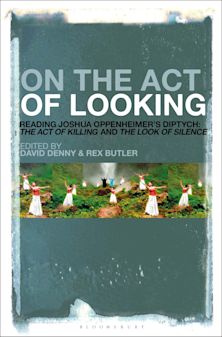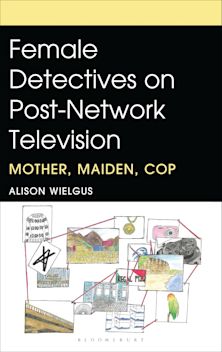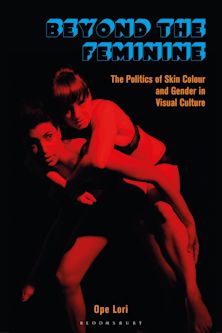What Movies Teach about Race
Exceptionalism, Erasure, and Entitlement
What Movies Teach about Race
Exceptionalism, Erasure, and Entitlement
This product is usually dispatched within 3 days
- Delivery and returns info
-
Free US delivery on orders $35 or over
Description
What Movies Teach about Race: Exceptionalism, Erasure, & Entitlement reveals the way that media frames in entertainment content persuade audiences to see themselves and others through a prescriptive lens that favors whiteness. These media representations threaten democracy as conglomeration and convergence concentrate the media’s global influence in the hands of a few corporations. By linking film’s political economy with the movie content in the most influential films, this critical discourse study uncovers the socially-shared cognitive structures that the movie industry passes down from one generation to another. Roslyn M. Satchel encourages media literacy and proposes an entertainment media cascading network activation theory that uncovers racialized rhetoric in media content that cyclically begins in historic ideologies, influences elite discourse, embeds in media systems, produces media frames and representations, shapes public opinion, and then is recycled and perpetuated generationally.
Table of Contents
Introduction
1. What is Movie Racialization?
2. How Media Frames Work
3. Who Really Makes Movies
4. Reading Movies
5. Measuring Media Frames that Racialize Groups
6. Cueing Racist Ideologies
7. Constructing Exceptionalism
8. A Call to Action
References
About the Author
Product details
| Published | Aug 31 2018 |
|---|---|
| Format | Paperback |
| Edition | 1st |
| Extent | 186 |
| ISBN | 9781498531832 |
| Imprint | Lexington Books |
| Illustrations | 1 b/w illustrations; 9 tables; |
| Dimensions | 9 x 6 inches |
| Series | Rhetoric, Race, and Religion |
| Publisher | Bloomsbury Publishing |
Reviews

ONLINE RESOURCES
Bloomsbury Collections
This book is available on Bloomsbury Collections where your library has access.



































